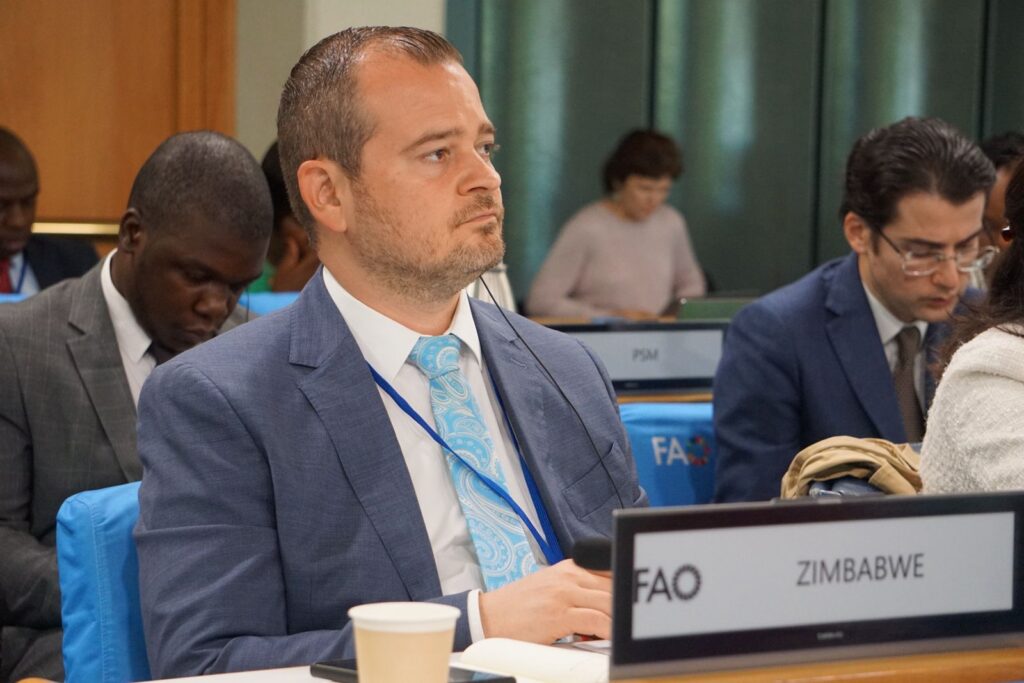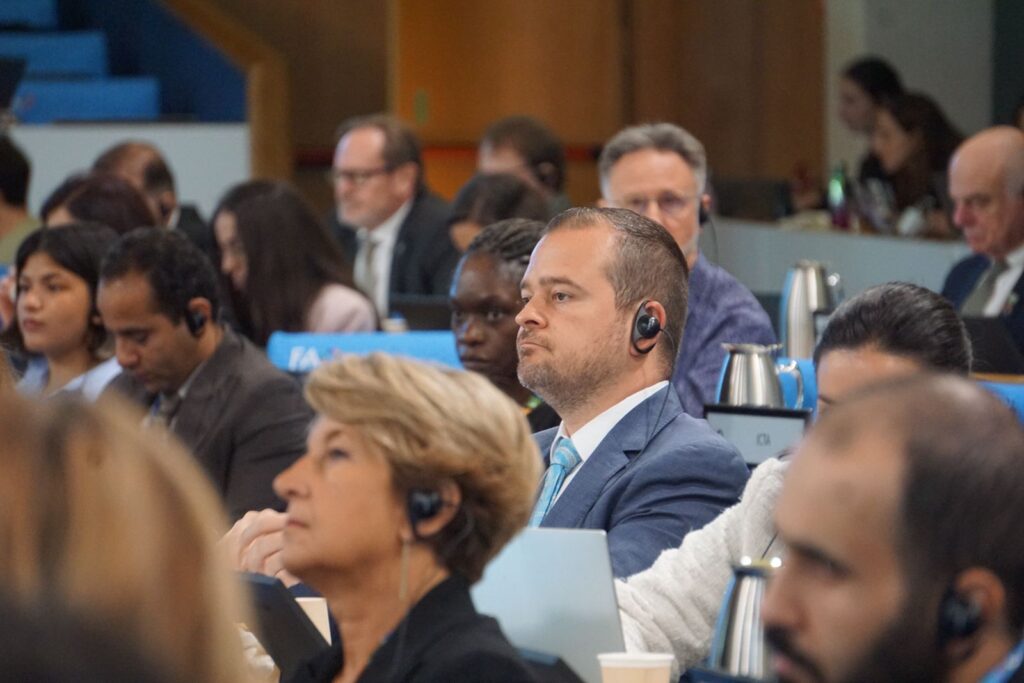Zimbabwe Fights Food Crisis Amid Global Uncertainty
By Delicious Mathuthu
Zimbabwe Lands, Agriculture, Fisheries, Water and Rural Development (MoLAFWARD) Deputy Minister, Vangelis Peter Haritatos, said the country is taking pro-active measures to ensure food security as world agriculture and food systems face unprecedented threats from climate change and conflicts, leaving millions vulnerable to hunger and malnutrition.
He said this while addressing delegates at the 52nd session of the Committee on World Food Security (CFS) in Italy, Rome; running from the 21st to the 25th of October 2024.
The session, hosted by the United Nations’ Food and Agriculture Organization (FAO), is being held under the subtheme: “Strengthening Coordinated Policy Responses to the Food Crisis”.
Minister Haritatos said since the 51st session of the CFS, global food systems have become increasingly vulnerable to multi-dimensional shocks and stresses.
Regional skirmishes along with wars in Ukraine and Gaza, have intensified geo-economic disunity, he said, a situation made worse in Sub Saharan Africa by the El Nino induced drought.
“Domestically; Zimbabwe was hit by a devastating El-Nino in which we were the epicentre of, in the whole of the Sub-Saharan African region (SSA), while regionally and globally, skirmishes in the Democratic Republic of Congo (DRC) and Mozambique, as well as the Ukraine and Gaza wars are intensifying geo-economic fragmentation between and among nations and creating a global funding squeeze that is not helpful in the collective fight against climate change and other universal and pervasive threats facing humanity today,” he said.
Deputy Minister Haritatos called for global unity to avert lingering threats of global hunger.
“These challenges and several others like them are testing the resolve of humanity to unify, rally together and collectively tackle threats of a ubiquitous nature that are threatening the achievement of Sustainable Development Goals (SDGs) like zero hunger, no poverty, good health & well-being among others.”
Back home, Zimbabwe, hit hard by the devastating El Niño drought, is taking bold steps to ensure food security, he said, with President Emmerson Mnangagwa declaring a state of national disaster on April 2, 2024.
“Zimbabwe, through its Food and Nutrition Security Policy (2012) recognises and reinforces the multiple causes of food and nutrition insecurity and the interconnectedness of sectors and indicates the need for collaborative and coordinated multi-sector response.
“In 2020, Zimbabwe embarked on its focus to transform agriculture through its Agriculture and Food Systems Rural Transformation Strategy. In order to cushion households and build resilience against the 2023/24 El Niño-induced drought which resulted in massive crop failure, depletion of water resources and pastures; the Government of Zimbabwe developed and implemented evidence-based policy responses to mitigate the crisis.”
He said key interventions done by the government of Zimbabwe includes Declaration of a State of National Disaster, Food Deficit Mitigation Strategy targeting vulnerable groups, supplementary grain importation and Strategic Grain Reserve enhancement, irrigation production expansion for cereals, drilling of 1,620 boreholes for water access, upscaled school feeding programs and the Presidential Input Program supporting 3.5 million households.
On contribution to regional and international efforts, he said Zimbabwe was a key architect of the Southern African Development Community’s (SADC) $3.9 billion Regional Humanitarian Appeal to support recovery efforts in member states affected by the El Niño-induced drought and floods.
Deputy Minister Haritatos also said Zimbabwe boasts of high political commitment and an enabling environment for food and nutrition security implementation as well as strong policy documents which guide response efforts, including the Multisectoral Food and Nutrition Security Strategy (2023-2025) and Agriculture Recovery Plan.
On nutrition clusters, he said they were strengthened for nutrition-specific interventions with significant efforts focused on nutrition-sensitive programming across sectors.
The El Niño-induced drought’s impact is projected to last until March 2025.



